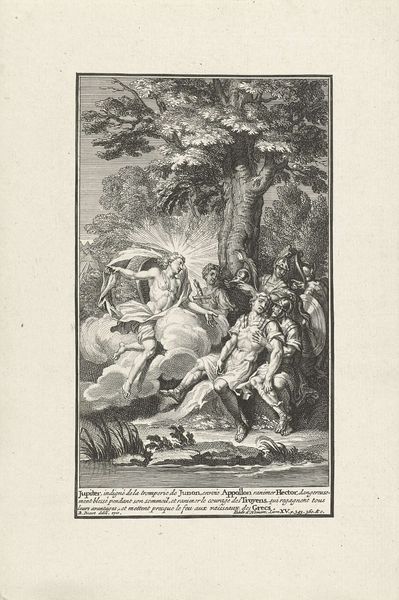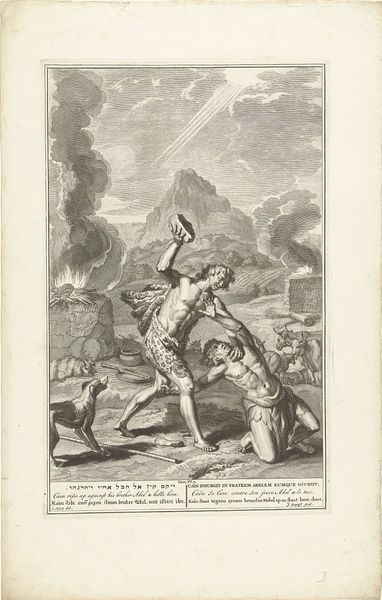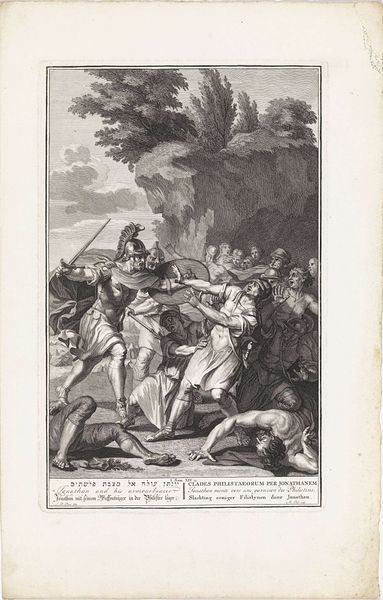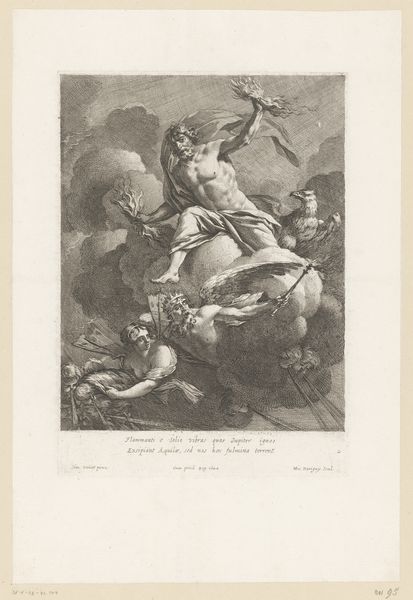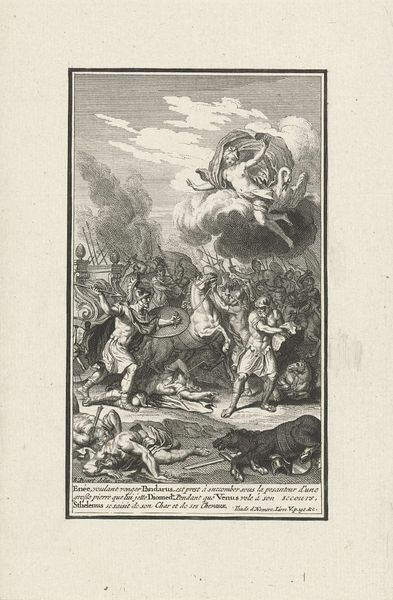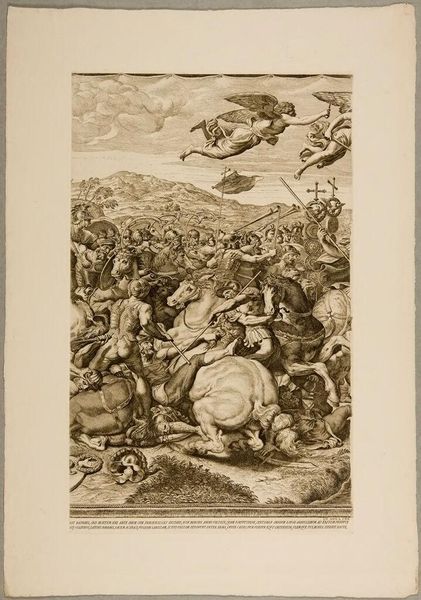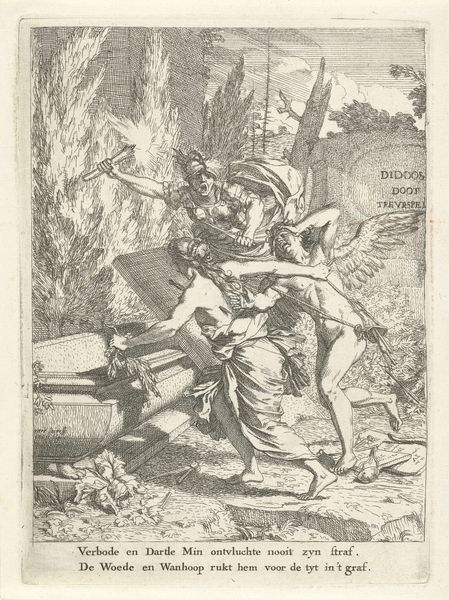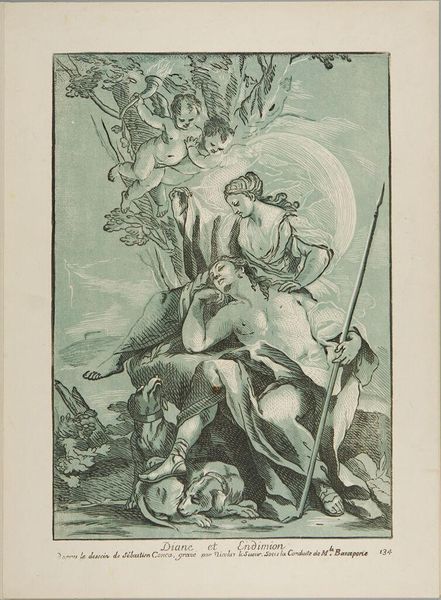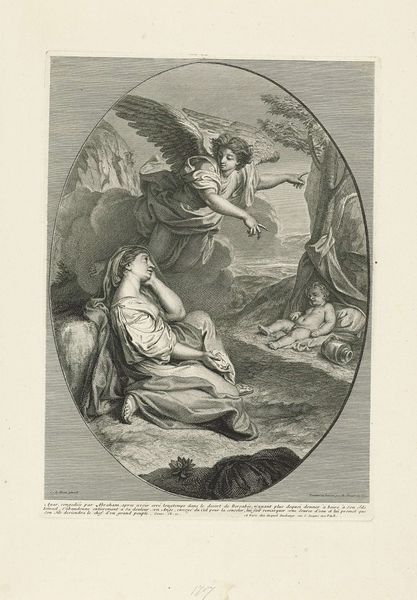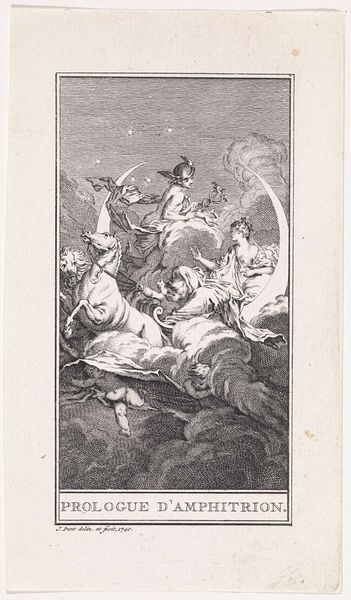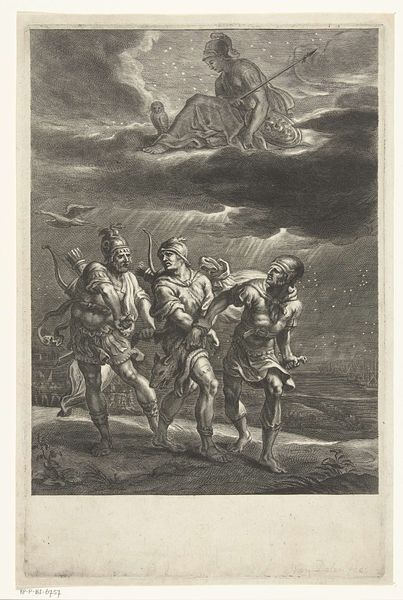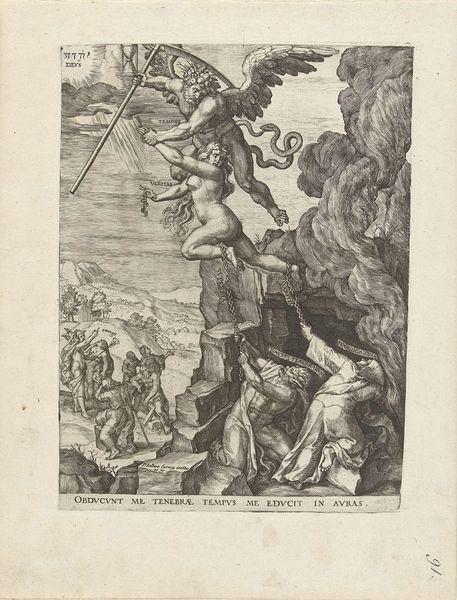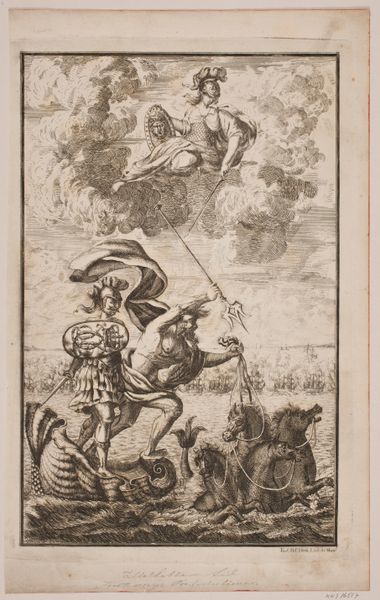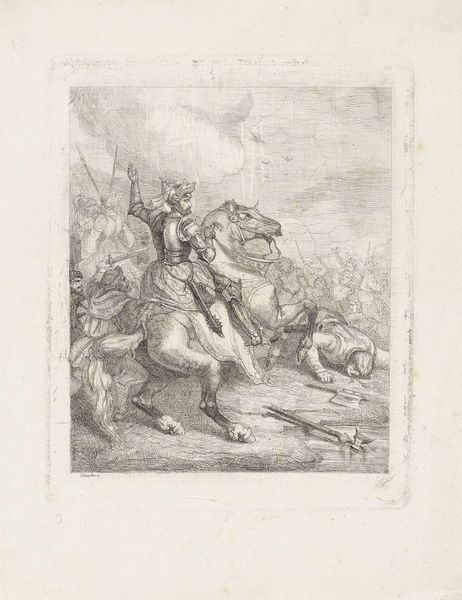
print, engraving
#
baroque
# print
#
figuration
#
history-painting
#
engraving
Dimensions: height 354 mm, width 225 mm
Copyright: Rijks Museum: Open Domain
This print, titled "Bekering van Paulus," or "Conversion of Paul," was made by Matthijs Pool sometime around the late 17th or early 18th century. It’s an etching, which means the image was incised into a metal plate, likely copper, with a sharp tool, then inked and printed. Look closely and you’ll notice that every line, every shadow, every detail is the result of a deliberate mark. This wasn’t a quick process; it required meticulous skill and planning. The weight of the lines, the way they create depth and drama—it's all about the labor and control the artist exerted over the material. The resulting print could be reproduced and disseminated widely, reflecting the growing power of printmaking as a medium in early modern Europe. It's a testament to the artist’s technical ability, but also to the broader social and economic forces that shaped the production and consumption of art at that time. So, next time you see a print, consider the amount of work involved in its production and the place it holds between craft and fine art.
Comments
No comments
Be the first to comment and join the conversation on the ultimate creative platform.
